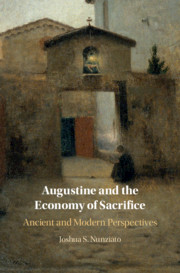Book contents
Conclusion
Published online by Cambridge University Press: 01 October 2019
Summary
From first to last, life is a work of parting. What began at the dawn of natural history with the division of the first protozoan continues in each human life at conception and birth. Cells divide. The child enters the world from its mother’s womb. The umbilical cord is cut. We learn what it means to be different from others: from family, from teachers, from friends. We change and grow. We slough and molt. The work of parting continues until death, that decisive moment of departure. These are the farewells of a lifetime. And in between the monumental occasions, we carry on the work of parting and call it business. We strike deals. We make exchanges. We give and take, buy and sell, teach and learn. Always we are parting: with things we care about, with people we love, with ideas we hold. And these everyday moments – no matter how insignificant – point us back to life itself. They remind us that our lives are wholly (and, maybe, holy) works of constant parting. Every day, our business poses the tacit question: Will we see our partings as losses or as offerings? Either way is always open to us. But Augustine’s vision of the economy of sacrifice suggests how the conditions of our exchange might look different if we took the second way.
- Type
- Chapter
- Information
- Augustine and the Economy of SacrificeAncient and Modern Perspectives, pp. 217 - 220Publisher: Cambridge University PressPrint publication year: 2019

